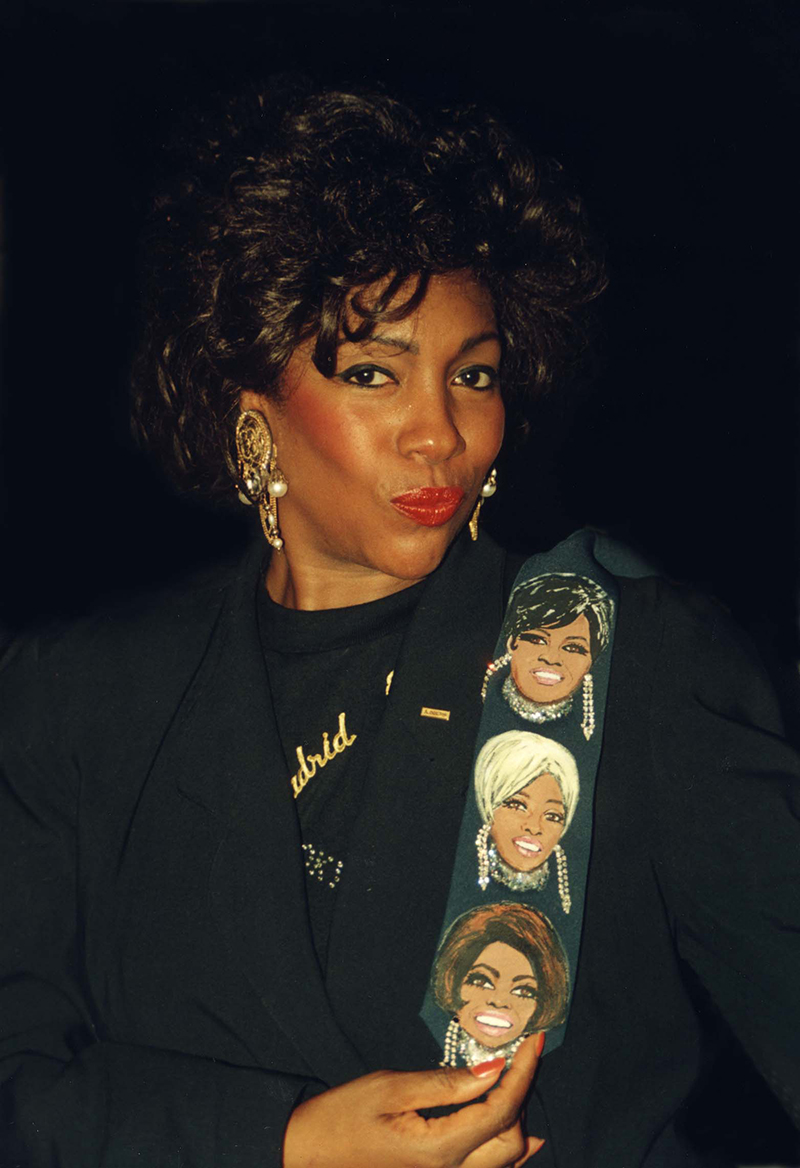OBITUARY: The Supremes’ cofounder Mary Wilson dead at 76

Mary Wilson of The Supremes in 1994. Courtesy: Kingkongphoto/Wikicommons.
Mary Wilson, who, along with Florence Ballard, Diana Ross and Betty Martin, founded The Supremes in 1961, died suddenly in her home Monday night, her family has announced. Progenitors of “The Motown Sound,” The Supremes went on to become the most successful vocal group in American history. The Supremes achieved worldwide success in the mid-’60s, blending elegant and exotic vocal arrangements over the pop gems composed and produced by Motown’s hit-making team of Lamont Dozier and brothers Brian and Eddie Holland.
While the group’s early releases failed to chart, in the spring of 1964 the Supremes, with some minor personnel changes, recorded single “Where Did Our Love Go?” It ultimately reached No. 1 on the U.S. pop charts (the song reached a whole new generation with Soft Cell’s new wave cover in 1981). The song unleashed a string of four more No. 1 hits for The Supremes: “Baby Love,” “Come See About Me,” “Stop! In the Name of Love” and “Back in My Arms Again,” all of which were composed and produced by Holland–Dozier–Holland. Mary Wilson sang backing vocals on 10 of The Supremes’ 12 No. 1 hits.
Onstage the band wore glamorous gowns, sparkling jewelry, and elaborate makeup, at least partially at the behest of Motown Records founder Berry Gordy. The sophisticated image Mary Wilson and the other members projected was often depicted in stark contrast to the chaotic caterwauling of white British contemporary bands like The Beatles. The Supremes managed to create a sound that was equally appealing to teenyboppers and martini-sippers. Even more importantly, the group broke down racial barriers by successfully appealing to both white and Black audiences.
Born in Greenville, Mississippi in 1944, Wilson and her family moved to Detroit after stints in St. Louis and Chicago. She would meet Florence Ballard, Diana Ross and Betty McGlown in the Frederick Douglass Housing Projects in Detroit and form The Primettes in the late 1950s.
Wilson remained in The Supremes despite Florence Ballard exiting in 1967 and Diana Ross in 1970. The Supremes would finally disband when Wilson departed in 1977.
Mary Wilson became a best-selling author after the release of her first autobiography, “Dream Girl: My Life as a Supreme” in 1986. The book ultimately became one of the best-selling rock and roll autobiographies ever. Wilson followed up with a second autobiography in 1990 titled “Supreme Faith: Someday We’ll Be Together.” The books, which contained unflattering depictions of Diana Ross, fueled a rivalry between the two for a time.
Wilson was involved in numerous legal battles over the course of her career. She sued both Motown Records and the band’s management. Wilson teamed up with Sha-Na-Na’s Jon ‘Bowser’ Bauman to author and then advocate for the Truth in Music Advertising act, which stipulates, among other things, that famous acts must contain at least one founding member in order to continue to use the band’s original name.
She died in her home in Henderson, Nevada. Services are planned for later in the year.
Twitter quickly filled up with heartfelt tributes to Wilson:
I am deeply saddened by the passing of the beautiful Mary Wilson! She was a legend and an icon and what she contributed to the world cannot be overstated. I send my deepest condolences and prayers to her family, loved ones and fans. ❤ pic.twitter.com/NBNZ6d8qmO
— Patti LaBelle (@MsPattiPatti) February 9, 2021
"Mary Wilson brought something wonderful to the Supremes. The warmth in her voice and music came from her soul. She was a good friend and I will miss her smile, her voice, and her heart.”
— Gladys Knight (@MsGladysKnight) February 9, 2021
I just woke up to this news , my condolences to you Mary's family ,I am reminded that each day is a gift ,I have so many wonderful memories of our time together "The Supremes " will live on ,in our hearts 💕
— Ms. Ross (@DianaRoss) February 9, 2021
To a female trailblazer and forever Sweetheart of Motown, who brought many timeless records for generations to come – Thank You.
Your art and your legacy will forever live on in the Motown story. From our Motown family, rest in paradise @MWilsonSupreme 🕊 pic.twitter.com/YwsZM41g9v
— Motown Records (@motown) February 9, 2021
Follow writer David Gill at Twitter.com/songotaku and Instagram/songotaku.
